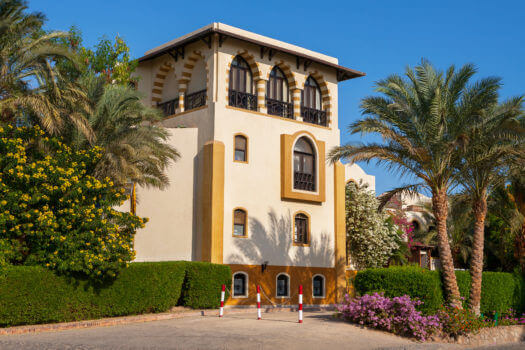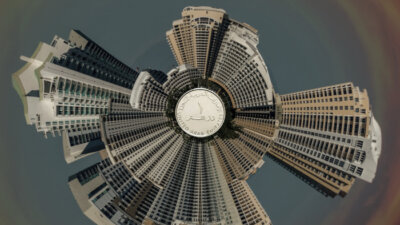

Leaving the UAE – should I sell or rent out my property?
This is a question we are asked frequently by those who are just starting their property purchase journey, as well as those who are long-term clients planning to move on from the UAE. It is an important question and something that should be considered as part of your exit strategy if you are an expat here.

Owning a property in the UAE when you are no longer a resident could be a great investment or it could just turn into a headache you’d rather not be dealing with – it all depends on how much preparation you do. Helpfully, at Mortgage Finder we have plenty of experience on the matter and can help you make the right choices.
What do I do about my mortgage when I leave the UAE?
There are some implications regarding your standing with your mortgage lender if you choose to leave the country. Read our article on the subject here and you’ll get a good understanding as to what you might expect and how to approach the situation.
Rental research – what are the likely property rental yields?
The first thing you need to know is whether you will be able to rent your home out for enough to make it worthwhile. You will need to take a few things into account and do a little research:
The area
Using a portal such as Property Finder, you can take a look at the properties around you, especially the rental ones. Knowing what others are charging for a similar property is the first indication on what you might be able to obtain.
Remember, that like everywhere around the world, cities with good transport links and well-known areas are much easier to let out properties than out-of-the-way locations. Even if your home is an enticing dream, if it is far from the main areas then you might have trouble renting it out.
The type of property
If your area is an enticement for families, then multi-bedroom properties are far more sought after than one-bedroom and studio flats. Conversely, smaller homes are an easy let in areas filled with young single people. Look at the type of your property and make sure than any comparisons you are doing are on a like-for-like basis.
Speak to a reputable real estate agent
Getting some insider thoughts is a great way to know the market, but remember that some agents are keen to impress and you should temper any enthusiasm with your real-world research.
Understanding the cost of letting
It isn’t as simple as using the rental income to pay the mortgage. Service charges, agency fees, maintenance of the property and periods when the home is tenantless are all going to be factors you have to take into account if you plan to become a landlord. As a rule of thumb, your rental income should cover your mortgage and service charges as a minimum, but it is best if it also allows for a small buffer in case of voids.
A seller’s market or a buyer’s paradise?
If you plan to sell, it’s very important for you to spend some time looking at the market. When the market is flooded, buyers have the advantage. It may pay to be patient; perhaps renting in the short term with a longer plan to sell once the market turns.
Short term letting – the power of Airbnb
With tourism continually on the rise in Dubai and the rest of the UAE, and the internet providing a fantastic portal for opportunity, short term letting is a realistic option for anyone looking to rent out their property.
Short term letting and holiday letting when you are non-resident means turning your property over to a management agency, but the high returns are such that even when these additional costs are factored in, the profit can be substantial.
If your property is in an area with high tourism, then this could be the perfect route – it also frees you up from any long-term tenant obligations meaning if you do want to sell at a later date it is easy to do so.
Your long term plans
If you are considering a return to the UAE then selling your property is probably not the right move. Long term letting for the years between now and your return is a safe option if you know when you plan to come back, and short term lets are an ideal way to maintain flexibility.
Keeping your property as an investment with an eye to a future return is often the best financial decision for anyone who isn’t sure they are completely done with their time here.
Realising your investment – understanding the cost of sale
- Mortgage early release charge – this could be as much as 3% of the remaining balance of your mortgage, so check with your bank and plan for it in advance.
- Depreciation – has your home dropped in value since you purchased it? Sometimes it pays to wait out any low slumps and sell when it’s in your favour.
- Final equity – calculate the amount you have put in with the original deposit and all your mortgage payments, then work out the net gains once the property is sold and the mortgage paid off: are you losing money after all? We all want property to work for us and improve on the investment, but short-sightedness can often make this not the case. It is also important to consider what rent you would have paid over the period that the mortgage was in place to get a true reflection of the return.
- Exchange rate fluctuations – take into account the change in exchange rate. If you came from the UK, for example, then is the final amount you will take home once converted back to sterling showing an actual profit? It’s not enough for the calculations to look good in dirhams; they should also be good in your home currency!
Help from Mortgage Finder
If you have any questions regarding leaving the UAE then our advisors are here to help. We can look at alternative options, such as refinancing to improve your rental value, and offer you ways to make the most of your investment. Why not fill in our contact form today or simply give us a call?





